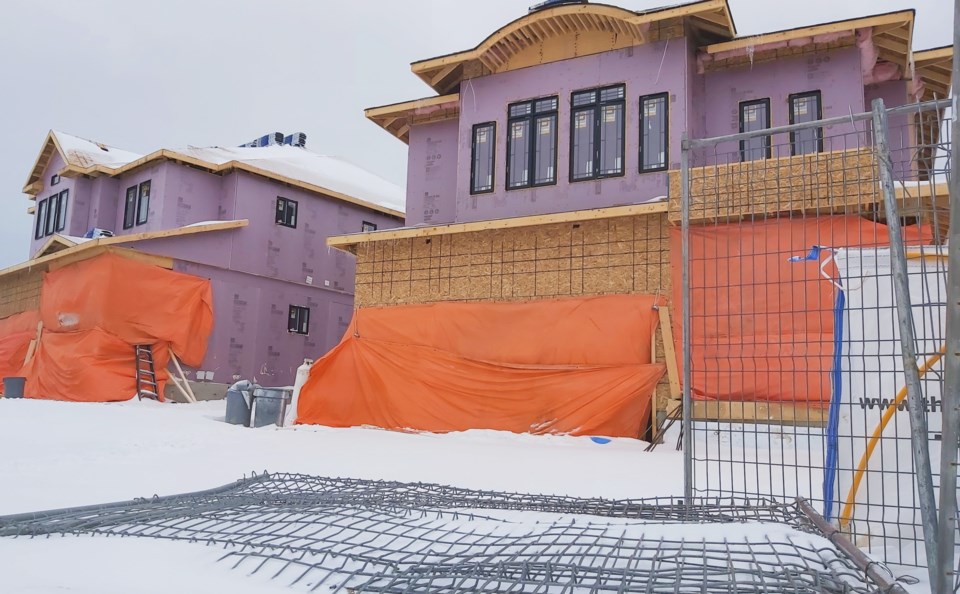Under threat of penalty from the provincial government, city council unanimously agreed to a number of changes to the approval process for new housing, with the goal of supporting the creation of 18,000 new units locally by 2031.
However, council is calling for upper-tier levels of government and others, including the development industry, to be held accountable for making changes on their end that will contribute to reaching that target.
In fact, a unanimously approved amendment to the motion made the pledge dependent upon provincial action.
“This motion, it’s great but it’s not going to happen,” Coun. Cathy Downer said, referring to having other stakeholders involved in making changes that encourage housing to be built. “Municipalities are on the front lines and we don’t really have those willing partners. Rarely are they at the table.
“No matter how much we beg, plead, make pledges, it’s not going to happen,” she continued. “I don’t even know if they’re going to read what our requests are. I don’t think they even care.”
The penalty for not pledging support is the potential to miss out on financial assistance from the province to help cover the cost of infrastructure needs, noted Krista Walkey, the city’s general manager of planning and building services.
Mayor Cam Guthrie, who recently finished a term as chair of the Ontario Big City Mayors group, said he has the same understanding – municipalities that don’t pledge support will be kept lower on the priority list when money is doled out.
During city budget confirmation discussions earlier this year, city staff pegged the loss of development charges and parkland dedications stemming from the implementation of Bill 23, the More Homes Built Faster Act, at more than $1 million.
Though elected provincial government representatives have made reference to ensuring municipalities are “made whole” financially, staff told council it’s “unclear” how that’s going to happen.
“We don’t have the financial or human resources to achieve that target,” CAO Scott Stewart said of the new housing target given to Guelph by the Ministry of Municipal Affairs and Housing. “The pledge can only become a reality if we all work together.
“Our housing supply has been a priority for a number of years,” he added. “Do we really need to be treated like a child?”
In order to achieve the target of 18,000 new housing units, staff told council the number of unit approvals will need to more than double in the years to come – a level of construction the city’s never seen before.
Municipalities are responsible for reviewing and approving planning applications, but they aren’t involved in the actual building of new homes. That, staff suggested, is why the development community should also be held accountable for reaching the target.
Speaking on behalf of the Guelph and District Home Builders Association, Josh Kaufman objected to the concept of penalties for developers who don’t move ahead promptly with projects once they’re approved.
“We cannot agree to this accountability,” he told council, noting the pace of building is influenced by interest rates set by the Bank of Canada, labour and supply issues and more. “We cannot control the uncontrollable.”
Those same reasons are among the inspiration for council’s request for upper-tier governments to be directly involved and make changes of their own.
Asked by Coun. Dominque O’Rourke to pledge that members of his association won’t apply to build on wetlands, something that’s now allowed by provincial legislation, Kaufman declined.
In approving the pledge, council made several specific requests of the province.
Among them is that the province exempt secondary plans, such as the Clair Maltby Secondary Plan, from appeal; that provincial ministries, municipalities, developers, homebuilders and other community partners be held jointly accountable for reaching the target; that the provincial government commit to building supporting institutions including schools, hospitals, daycares and long-term care facilities to support the provincially anticipated surge in population; along with provincial support for the “associated funding” of health care workers, paramedics, public health and social services.
Additions on Tuesday include a request for the province to fund brownfield remediation for municipally managed sites; that surplus provincially owned lands be donated to the city for subsidized, co-op or non-profit housing; that housing targets be held at current levels for five years in order to allow planning staff to focus on reviewing projects rather than policy changes; that the federal government collaborate directly with municipalities as well as the province; and that planned third-party audits of municipal reserves and the financial impacts of Bill 23 go ahead.
